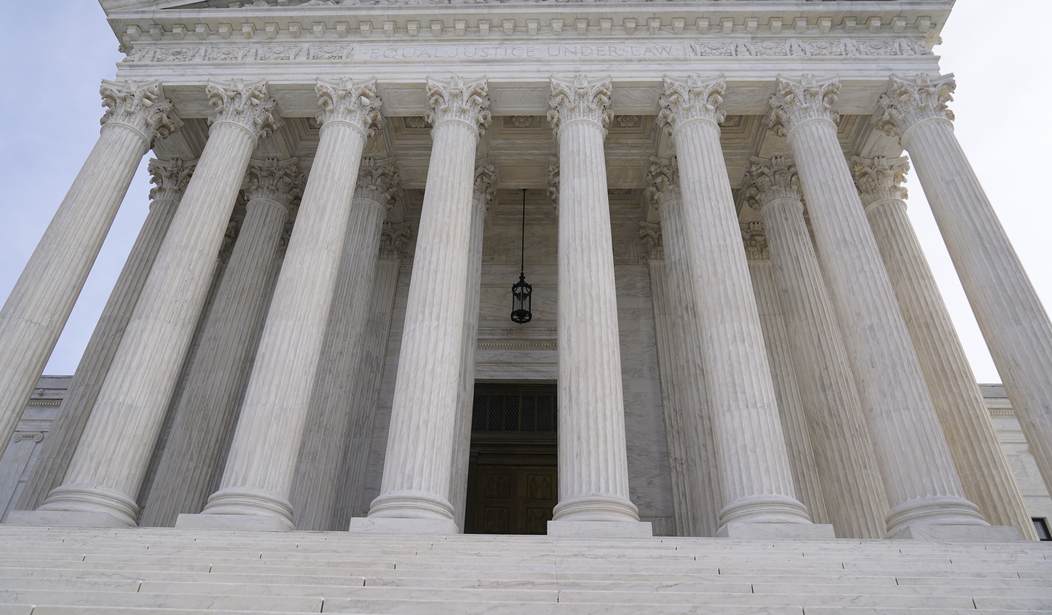The retirement of Justice Stephen Breyer gives President Biden a significant opportunity to leave a true legacy upon the nation. As Biden begins his interview process, it is clear he is committed to appointing a far-left ideologue to replace Breyer. However, this effort will not impact the current ideological divide on the high court or the chance to reverse Roe v. Wade.
Breyer, when appointed by Clinton in 1994, was applauded by both Republicans and Democrats as a centrist who would not fit into a particular ideological camp. This did not turn out to be the case. During his tenure, he was a consistent and reliable vote for the liberal wing of the court.
One case stands out as an example. In 2015 the state of California passed a law – the so-called “Reproductive Fact Act” – that mandated pro-life medical clinics to post signs on the walls of their waiting areas advising patients of their right to a state-funded abortion. These signs had to be in multiple languages, large font and include an 800 number to call to obtain an abortion.
The law, if left to stand, held serious implications for the right of free speech for pro-life agencies, which number over two thousand nationwide. In a broader sense, the law had serious implications for the future of free speech in this country.
Can the government mandate that Hindu temples promote state-funded hamburgers? Can the government mandate that Alcoholics Anonymous post signs in its offices advising members where local liquor stores are located? Or, how about a law that forces the American Cancer Society to promote cigarettes?
Recommended
Such examples appear to be extreme. However, if the California law was allowed to stand, then the answer to these questions would have been “yes.” If special interest groups were to gain sufficient political power to pass similar laws, these scenarios would go from hypothetical to reality. In California, the abortion movement has such power.
The agenda of the pro-abortion movement has long been to stop the work of pro-life centers, which provide resources and support to mothers considering abortion. Forcing pro-life centers to be billboards for the abortion industry would change their very nature. Many stated that they would close down before promoting abortion.
Of course, closing down their opposition was the real objective of this law. Since the early 1980s, the pro-abortion movement has been clamoring for legislation and restrictions that would halt the work of their pro-life competitors.
The California law threatened the right to free speech. This cherished right allows all Americans to speak without government interference. It also stops the government from forcing individuals to speak a message with which they fundamentally disagree.
During oral arguments in the case of NIFLA v. Becerra, Justice Breyer was aggressive in his questioning. He erroneously equated the California law with informed consent laws that require abortion doctors to provide certain information to their patients. Breyer’s position is patently false.
Informed consent is necessary in all cases of medical intervention and procedures, such as abortion, that impact the physical health of the recipient. Support in the form of advice and material resources provided by pro-life pregnancy centers and medical clinics does not fall into this category. Such dialogue and interactions constitute free speech – never a surgical procedure. Equating the two is comparing apples to oranges. The originators of this legislation were engaged in a blatant attempt to protect the abortion industry and its massive profit margins.
In its 5-4 opinion authored by Justice Thomas, the U.S. Supreme Court found that the California law violated the free speech rights of pro-life centers. It also stated that the California law was, in fact, not informed consent. Instead, the opinion made it clear that this legislation was unconstitutional because it attempted to mandate government-compelled speech.
The justices who voted to uphold the law – Breyer, Ginsburg, Kagan and Sotomayor – showed that they love abortion (which is not mentioned in the Constitution) more than they love the fundamental right of free speech (which is clearly mentioned in the Constitution). Justice Breyer’s vote, comments and dissenting opinion show he is committed to a left-wing agenda rather than a sound interpretation of the Constitution.
Breyer’s replacement will clearly be a judge from the left who, like Breyer, believes that the Constitution should be interpreted to advance a leftist agenda. The most concerning aspect is that this justice will, without a doubt, be relatively youthful and serve for decades. However, this new voice on the high court will not change the current balance or jeopardize the chance to overturn Roe. For that, we can be thankful.
























Join the conversation as a VIP Member